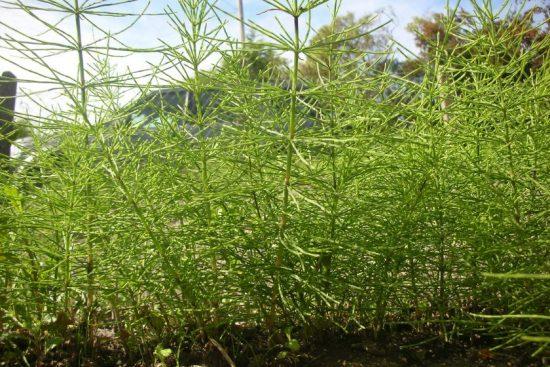The Ultimate Guide to Selecting the Best Weedkiller for Horsetail
Horsetail weeds are not just any plant. They are some of the most difficult weeds to eradicate from your lawn or garden. If you find yourself struggling with horsetail (also called Marestail), there is hope yet. By choosing the right weed killer and following a few important guidelines, you can get rid of those troublesome weeds.
Understanding the horsetail weed
Horsetail weed is a deeply rooted perennial plant that can be extremely difficult to remove from your garden. Before delving any deeper into finding the best weedkiller for horsetail, it is important to understand what it is and how it grows so that you can effectively target it.
Horsetail weed, also known as Equisetum Arvense, is a primitive plant that has been around for millions of years. It typically grows in damp or wet soil and can send roots down to depths of over 3 metres! This extensive root system makes it almost impossible to pull up by hand or remove with traditional gardening tools as if the smallest section of root is left behind, a whole new horsetail plant can grow. Additionally, the plant produces spores that can spread quickly. Understanding the biology of horsetail weed is key to selecting the right type of weed killer and using it effectively.
Types of weedkillers
There are several types of weedkillers available on the market to help control horsetail weeds and it is important to consider the different types available. Chemical-based options are the most effective when it comes to horsetail however several applications may be necessary depending on the extent of the horsetail infestation.
It is important to make sure you are using a weed killer that is suitable for the area that you are applying it on, whether that be a garden lawn or an area of waste ground that you are wanting to tidy up. Carefully check the labels of any weed killers you consider before making a final decision on which one is best for your needs.
Selective or Non-Selective Weed Killer
A selective herbicide targets specific weeds without harming as grass, whereas a non-selective herbicide kills everything that it comes into contact with. You’ll need to consider which type of weed killer will work best for your situation.
Selective herbicides, such as SBK Brushwood Killer together with an adjuvant to improve uptake (Kplus), are ideal for those who want to eliminate horsetail without damaging their lawns.
Non-selective herbicides, such as Kurtail Evo, on the other hand, can be more effective in controlling heavy infestations of horsetail but can damage and kill other plants and turf that it comes into contact with so care with drift and eliminating overspray are very important.
Always read the label carefully and follow instructions on use to make sure that you are using the products safely and effectively.
Active Ingredients
Herbicides have different active ingredients that target weeds in specific ways. Some active ingredients are more effective on horsetail than others so it is essential to choose a product that has the right blend of chemicals to deal with the issue at hand.
The efficacy of a weed killer depends on its ability to target specific weeds and effectively eliminate them. Glyphosate is a popular active ingredient for non-selective herbicides however this on its own is not strong enough to combat horsetail weeds. Kurtail Evo contains a blend of glyphosate and 2,4-D. Together these ingredients combine in a lipophilic action to maximise uptake into the weed.
On the other hand there are selective herbicides such as SBK Brushwood killer that contain the active ingredient of triclopyr, which is ideal for targeting tough woody or broad-leaved weeds, including horsetail, are the ideal product for use in your garden when you are wanting to control this tricky weed while still keeping your lawn intact.
If you are unsure as to which option is the best method for you, be sure to look through our extensive horsetail guides or contact one of our specialists at [email protected].





